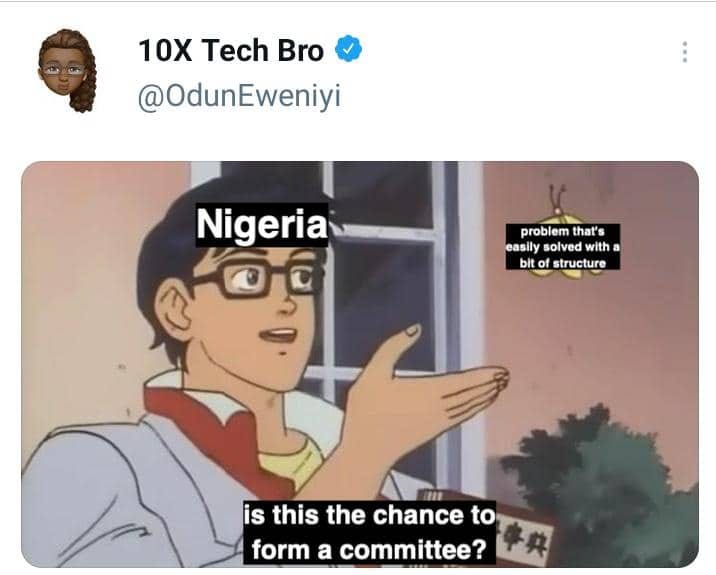Hello everyone. Trust we all had a great weekend.
Sorry, you actually didn’t miss our emails in your inbox last week. We were off last week due to other pressing matters. Today, we will be focusing on the Oil & Gas sector, as we address some of the innovations being driven by the Petroleum Industry Bill, 2021 and then we will discuss a very interesting decision from the Court of Appeal about ATMs.
Before we move on, huge announcement! The content we are publishing at Nigerian Regulations is now being supported by the amazing lawyers at Zyden Legal (big shoutout to them!).
Little Note about Zyden Legal
Zyden Legal is an agile law firm in the business of providing world-class legal solutions to clients spread across Africa, Europe, Asia and North America.
They have expertise servicing clients across more than 48 countries, including governments, nobel peace prize winners, luxury brands, e-commerce chains, starups, and tech experts, providing much needed innovative legal solutions.
Visit their website here: https://www.zydenlegal.com/
To the topic of today.
The Petroleum Industry Bill
You know, my current nightmare is the Petroleum Industry Bill (PIB), as I can probably say for every other Law Firm Associate (forced by clients and partners to read the PIB ), reading this Newsletter. Access a copy of the PIB here.
However, the regulation has been a long time coming, with its far-reaching reforms into one of Nigeria’s foremost economic contributing sector. The Oil & Gas (“OG”) sector of Nigeria is reputed to contribute about 10 % to Nigeria’s GDP and a gaping 80% of the country’s export (and a source of FX for our CBN). So yeah, the sector is a dear component of the Nigerian economy that we should all pay attention to.
The proposed PIB is a lot of improvement on the scattered form of regulations which has long guided the OG sector. (My last count of the laws -not counting regulations- affecting that sector is about 17). The PIB does a lot in repealing some of the current laws while modifying some other ones - unfortunately, we cannot dig in too much, for now.
One of the far-reaching reforms which the proposed Bill suggests is the restructuring of institutions like the Nigerian National Petroleum Corporation (NNPC), the Department of Petroleum Resources (DPR), and the Petroleum Products and Pricing Regulatory Agency (PPPRA), which have new identities with clear-cut functions under the PIB.
The restructuring of the NNPC, for instance, means that Nigeria is departing from its regulator-operator model for the OG sector. Currently, the NNPC which is seen as a regulator, of some sort, in the OG sector is also an operator in the sector. That is, it is engaged in the production and sale of petroleum and petroleum products. Readers would understand that this could be a problem in the modern commodities market because you can’t be the referee and a team member at the same time. (Well except Man United fans who wouldn’t understand this concept. Sorry o, na banter 😉).
Anyhoo, under the proposed PIB, the newly-known NNPC Limited would be a private entity (kind of like a GT Bank Ltd), with shares wholly owned by the Federal Government, and would be an enterprise optimized to make profits (Amen IJN, Fire! 🙏🏽). P.S. As a corporation, the current NNPC have never declared profits before, but then hmmm.
Another upside of the new Bill is it has created some form of equitable arrangement around the exploration of Nigeria’s natural resources and how it affects communities where the resources are discovered. This arrangement is called the “Host Communities Development Trust”. Briefly, the trust entities would be appointed to administer 3% of the operating revenue generated by oil companies for the benefit of communities in which oil is being explored.
So before now, we all understand how onshore exploration of Nigerian oil reserves by companies have led to oil spillage and made life a living hell for people in the Niger Delta. Apart from the adverse health impacts of oil exploration, the redistribution of the national wealth gained from oil exploration to the ‘land-owners’ has been rather poor.
Interestingly, what is meant to be a solution under the PIB may still carry with it, a smaller problem 🤦🏽♂️.
The clause of the bill which establishes the ‘host communities development trust’ requires it to be managed by a Board of Trustees, appointed by licensed settlors (settlors are mostly upstream and midstream operators). On the membership of a BoT, there is a funny provision which states that the member of a BoT does not necessarily have to come from the host community. See Section 242 (2).
My initial worry was, yeah, this may likely be a problem where people appointed to solve a problem for a host community do not come from that host community. However, sections 247 and 249 of the PIB reveal another matrix of committees who answer to the Board of Trustees, and can have representation from host communities.
Well, I have my sentiments about Committees being a solution to problems in Nigeria 👇🏽.
The BIP in the PIB…
Don’t know who coined the term “Backward Integration Policy” (BIP), but (s)he must have been onto something. Because in the Nigerian case, the implementation of the BIP in our industries has not been anything else but backward.
And yeah, this policy blip is coming to town in Nigeria’s downstream OG sector by the inclusion of Section 317(8) in the PIB.
(1) The Authority shall apply the Backward
Integration Policy in the downstream
petroleum sector to encourage investment in
local refining.
(2) Pursuant to subsection (1) of this section,
licence to import any product shortfalls may be
assigned only to companies with active local
refining licences and proven track records of
international crude oil and petroleum products
trading.
Before we address the Backward Integration Policy in the PIB, let us understand the meaning. Backward Integration is a corporate strategy used by companies to backtrack and acquire players/operators in their value chain (in rough terms, cutting middle men, say for instance, suppliers of a raw material, to keep more money for yourself, while keeping the price the same). As a background, you can understand more about the corporate meaning of BIPs here.
But in the regulatory space, the purpose of BIPs are usually a form of local content drive to make local companies champions of industries within Nigeria, so they can employ more people, pay more taxes, etc., etc. This policy has come at a high cost to the free economy.
Take the cement and sugar industry for instance. A Backward Integration Policy in those industries has ensured that less competition for new entrants. Dangote and some other big players are holding Nigerians to ransom with their pricing tactics. This is backed by data in the cement industry.
While it may be palatable that this Backward Integration Policy is limited to the downstream sector (the operators who refine, process, market, distribute and sell oil), it is concerning that these are the same participants who will be determining the cost of retail prices of petroleum and petroleum products to Nigerians.
Another rather strange development that may connect to this BIP is how Nigeria’s NNPC is planning to shell out $2.67 billion to invest in Dangote’s local refinery which will refine petroleum within Nigeria. We can probably imagine how costly retail petrol prices may become if there is no healthy environment for competition, as seen in the cement and sugar industries.
I worry that the combination of anti-competition practices and state-sponsored capitalism through Section 317 (8), is we just ‘putting our back in it’ for Nigeria’s favourite billionaire once again? Maybe.
And this story of ATMs not dispensing cash....
As a disciple of Common-Law driven judicial activism, I have always viewed the courts as some form of supra-regulator for different sectors over which they have jurisdiction.
Why? Because they interpret the different regulations and laws, using their interpretative tools, to arrive at a decision, based on the facts of a case.
So yeah, the Court of Appeal in a recent case took a decision which could essentially treat an ATM like a cheque? At least that has been the general sentiment.
The decision from the case of Moses Jwan v. Ecobank Nigeria Plc & Anor. (2021) 10 NWLR pt. 449 is based on facts which I will summarise as follows.
Sometime in 2012, a fellow named Moses, went to a UBA ATM and attempted to withdraw N10,000 from his Ecobank account. After hearing the brrrrr sound of the ATM, Moses claimed he did not see any cash, yet he got a debit alert.
Essentially, the ATM said:
After several complaints to both his Ecobank and UBA bank, customary of Nigerian banks, they told him their account lodge showed a transaction happened. End of story? Nah.
Well, Moses sued both banks and has won N500,000 in damages.
What interests me in the decision is how Nigerian courts may start treating instances of negligence by banks when it comes to failed transactions such as withdrawing money from the ATM. (“Zenith Bank, Alagomeji branch, are you listening?” 🗣️)
In case you still want to dig deep into the case, several experienced litigation lawyers have analyzed the case, and I find this skeptic view interesting. Another concise explanation on the decision can be found here.
What is clear to me is that courts have established how banks should deal with their duty of care regarding customer’s funds. Therefore, if banks don’t want to fall victim, they need to find test-worthy ways of establishing how customers receive their cash from ATMs. A failure of banks to prove this may end up with courts relying on this precedent to side with customers. And oh, we will still keep an eye on this case in the event it is appealed at the Supreme Court.
In addition, I’m almost certain the CBN has a framework for settlement of disputes on payment transactions like we have in this case. Perhaps, we will explore that briefly on Wednesday.
P.S. So I’m testing a new feature for follow-up publications. In the “Now This Happened” section, you will find short sentences with links on interesting things to follow that may keep you ‘commercially-aware’ before our next publication.
Now This Happened.
China seems to be clamping down on its tech companies, and investors are losing money. Somewhere else in the US, the capital markets regulator is rewriting the rules of disclosure required of listed Chinese stocks. Also, one of my favourite Fintechs, Kuda is almost hitting unicorn status ($1 billion value), but there are debates about how much of VC valuations today are a bubble or in more crass terms, a ponzi scheme? Lastly, is Crypto Regulation coming to the US? Listen to the US SEC regulator talk about platform trading and investor protection in the Crypto world.
Whew!
That’s all for today. By Wednesday, we will be talking about a regulation by the CBN creating guidelines for Payment Service Holding Companies, in addition to any other thing of interest that comes up.
Have an amazing week ahead!
Did you enjoy reading this Newsletter? Oh nice, I’m accepting cash donations and you can send it to me on the Abeg App: Abeg Tag @tooni https://abeg.app/
Also, don’t forget to subscribe to get weekly updates on Nigerian regulations and please share with your friends and colleagues.









As always, we now have indications of amendments proposal on a newly birthed law . Only Members of the host community should be allowed in the host community development trust.. On the Judgement on ATM Dispense error, 2012 - 2021 to get a damage of #500,000 isn't bad, afterall.